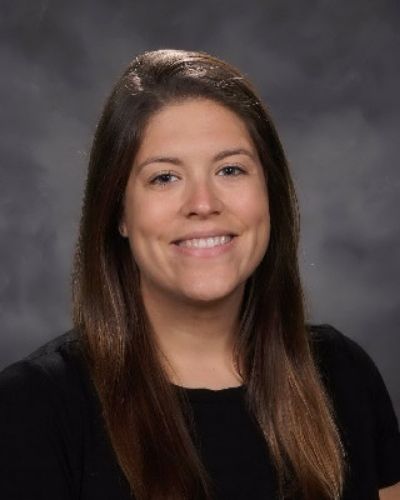
A Little Bit About Me
Hello! My name is Sunny Phipps and I am the Speech Language Pathologist at Woodrow Wilson Middle School. I have worked at Woodrow Wilson for 6 years. I earned my Bachelor of Science degree in Communication Disorders in 2013 and my Masters degree in Speech Language Pathology in 2015, both from Indiana State University. I live in Brazil, Indiana with my husband Adam. We enjoy traveling and being outdoors.
What is a Speech Language Pathologist?
Speech-language pathologists (SLPs) work to prevent, assess, diagnose, and treat speech, language, social communication, cognitive-communication, and swallowing disorders in children and adults.
- Speech disorders occur when a person has difficulty producing speech sounds correctly or fluently (e.g., stuttering is a form of disfluency) or has problems with his or her voice or resonance.
- Language disorders occur when a person has trouble understanding others (receptive language), or sharing thoughts, ideas, and feelings (expressive language). Language disorders may be spoken or written and may involve the form (phonology, morphology, syntax), content (semantics), and/or use (pragmatics) of language in functional and socially appropriate ways.
- Social communication disorders occur when a person has trouble with the social use of verbal and nonverbal communication. These disorders may include problems (a) communicating for social purposes (e.g., greeting, commenting, asking questions), (b) talking in different ways to suit the listener and setting, and (c) following rules for conversation and story-telling. All individuals with autism spectrum disorder have social communication problems. Social communication disorders are also found individuals with other conditions, such as traumatic brain injury.
- Cognitive-communication disorders include problems organizing thoughts, paying attention, remembering, planning, and/or problem-solving. These disorders usually happen as a result of a stroke, traumatic brain injury, or dementia, although they can be congenital.
- Swallowing disorders (dysphagia) are feeding and swallowing difficulties, which may follow an illness, surgery, stroke, or injury.
Additionally, SLPs:
- Provide aural rehabilitation for individuals who are deaf or hard of hearing.
- Provide augmentative and alternative communication (AAC) systems for individuals with severe expressive and/or language comprehension disorders, such as autism spectrum disorder or progressive neurological disorders.
Source: American Speech-Language-Hearing Association (ASHA)

